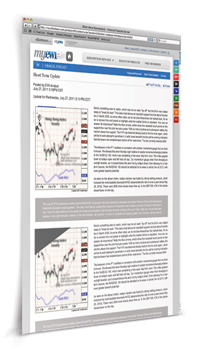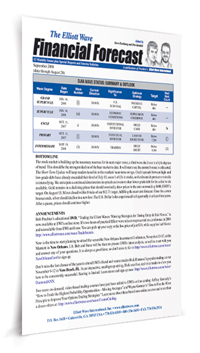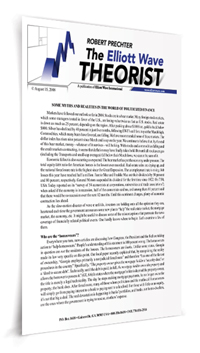The Perils of "Buying the Dip" in U.S. Stocks
Stock-Markets / Stock Markets 2016 Jan 14, 2016 - 02:37 PM GMTBy: EWI
 Legions of bargain hunters have suffered losses by buying stock market dips at the start of bear markets.
Legions of bargain hunters have suffered losses by buying stock market dips at the start of bear markets.
Making matters worse, they decimate their portfolios by continuing to buy all the way down, only to capitulate at the bottom.
This chart and commentary is from Elliott Wave International's April 2001 Financial Forecast:
.jpg)
"If there were ever a testament to the importance of market timing, the NASDAQ over the last year is it. Anyone who bought into the euphoria at the all-time high or the bull trap highs of early September and late January, would have taken successive hits of 40%, 47% and 38%. You can bet that many people followed the “buy” advice in the media on every bounce, losing even more than the “hold-only” loss of 65% from top to bottom."
And, bear in mind, the NASDAQ continued to fall into October 2002, handing even deeper losses to investors who continued to buy on the way down.
Let's now shift to the Dow Industrials and consider the market volatility that kicked off 2016. In the first week of trading, the Dow surrendered 6.1%, the worst start ever for the senior index and the worst week since September 2011.
Even so, here's the sentiment that was expressed in a prominent financial publication:
"Where are all of the long-term investors? Why isn’t anyone buying the dip? Many good stocks are trading at far better prices than in recent months, and they can be had at even better prices with some legerdemain." (Barron's, Jan. 9)
Through January 13, "U.S. stocks are now off $1.77 trillion…since the start of 2016." (CNBC)
The bigger the dip, the bigger the opportunity?
Some keep saying -- yes. But our analysis suggests that caution, not buying the dip, is the best approach at this juncture.
Here's an excerpt from Elliott Wave International's just-published January Financial Forecast:
"According to the conventional view, 2015's decline was a small downward blip in a bull market that will soon resume.
"The Elliott Wave Financial Forecast's view is the opposite: 2015 was a key transition year."
That's just one small part of this new 10-page issue. It's packed with 12 must-see charts and countless more insights that only Elliott wave analysis can provide you with.
Your Free 2-Week Trial Offer
Put the risk on us. Try The Elliott Wave Financial Forecast Service 100% free for the next two weeks -- and experience the benefits of being a subscriber! You get all recent issues, a library of free investor and trader reports, special video presentations and more.
For the next 2 weeks, start of 2016 on the right foot with:
U.S. Short Term Update (Mon, Wed, Fri)
You'll get forecasts for the markets' turns each Monday, Wednesday, and Friday, after the markets close. Extensive Elliott wave charts and commentary include stocks, bonds, metals, and the U.S. dollar. Also includes occasional special opportunities for stocks that look poised for major moves.
U.S. Elliott Wave Financial Forecast (Monthly)
Tracks intermediate-term patterns in the U.S. markets and forecasts upcoming price movements. You get monthly wave analysis of stocks, bonds, metals, the U.S. dollar and economic and social trends.
The Elliott Wave Theorist (Monthly)
At least once per month, you'll also get Bob Prechter's cutting edge view into when, where, and why the waves are unfolding in the broader market. Each Theorist provides unparalleled insight into the sociological and psychological signals in the marketplace.
Your only risk is being challenged to a new view of the markets and investment strategy.
Yes! Start my 2-Week Risk-Free Trial now >>
About the Publisher, Elliott Wave International
Founded in 1979 by Robert R. Prechter Jr., Elliott Wave International (EWI) is the world's largest market forecasting firm. Its staff of full-time analysts provides 24-hour-a-day market analysis to institutional and private investors around the world.
© 2005-2022 http://www.MarketOracle.co.uk - The Market Oracle is a FREE Daily Financial Markets Analysis & Forecasting online publication.






